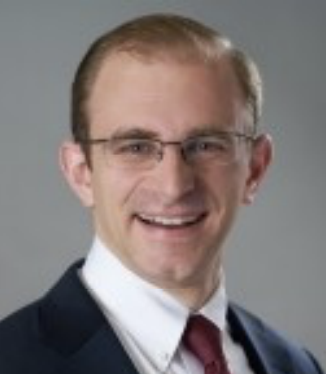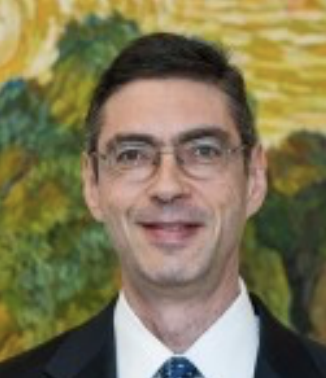The Future of Warfare in 2030

Speakers: Cohen, R. (RAND); Shatz, H. (RAND)
Date: 11 September 2020
Speaker Session Summary
SMA hosted a speaker session presented by Dr. Raphael Cohen (RAND) and Dr. Howard Shatz (RAND) as a part of its SMA General Speaker Series. This brief focused on what the future of conflict looks like. Dr. Cohen, Dr. Shatz, and their report co authors examined the top trends in seven different fields within the changing strategic environment and how they would interact with each other to shape the future of conflict. These fields include 1) geopolitics (e.g., “American angst,” China’s rise, the return of Russia, turmoil in the Middle East); 2) environment and geography (e.g., what climate looks like in certain parts of the world due to climate change); 3) cyber (e.g., espionage and sabotage); 4) space (e.g., what the increasing commercialization of space and the creation of the Space Force mean for space); 5) economics (e.g., increasing trade barriers, decreasing shares of the global economy among the US and its allies); 6) restraint (e.g., legal restraints and lawfare, increasing public concern for civilian casualties within Western democracies); and 7) military (e.g., decreasing American force size, increasing capabilities among adversaries). Dr. Cohen then discussed who and where the US will fight future conflicts. He highlighted that the US’s adversaries will remain relatively the same due to conflicting interests. The US’s alliances may shift a bit, however, due to differences in priorities, tensions arising between the US and more traditional Western alliances, and realignment in Asia as countries become more involved with China. Dr. Cohen stated that although the Middle East remains the most likely theater for conflict, Asia is rapidly becoming the most dangerous theater for conflict. This is due to an increasingly aggressive China, the large amount of weaponry that Asian countries are buying, and longstanding territorial disputes. Next, Dr. Cohen discussed what types of conflicts the US is likely to engage in and how it will fight. He stated that high end conflict will be more likely, though it will not replace low end conflict. Waning US conventional superiority will also come into play, as China and Russia have been making large military investments to close the gap between their militaries and that of the US. Furthermore, the drivers of substate violence terrorism will not diminish, and gray zone activities will remain a cheaper, preferred option for US adversaries. Dr. Cohen then stated that the US’s quantitative and qualitative advantages will be diminished as it engages in these conflicts due to China’s ability to maintain a larger defense industrial base and the US’s inability to have a lock on the newest technologies. To conclude, Dr. Cohen spoke about why wars will be fought and the implications for the DoD. He stated that there will be a reemergence of old drivers of conflict, including alliance entrapment and rival hegemonic ambitions. Dr. Cohen also advised the DoD to 1) remain vigilant in terms of terrorism and substate violence, 2) be mindful of the fact that the Middle East will likely continue to drain resources, and 3) remember that no technological solution can compensate for posture.
Dr. Shatz assisted Dr. Cohen with much of this research and offered his insights regarding the material during the Q&A session following the presentation.
Note: We are aware that many government IT providers have blocked access to YouTube from government machines during the pandemic in response to bandwidth limitations. We recommend viewing the recording on YouTube from a non-government computer or listening to the audio file (below), if you are in this position.
Please email Ms. Nicole Omundson (nomundson@nsiteam.com) to receive the speakers’ slides.
Raphael S. Cohen

Associate Director, Strategy and Doctrine Program, Project Air Force; Senior Political Scientist
Washington Office
Education
Ph.D. in government, Georgetown University; M.A. in security studies, Georgetown University; B.A. in government, Harvard University
Biography
Raphael "Rafi" Cohen is the associate director of the Strategy and Doctrine Program in Project AIRFORCE. He works on a broad range of defense and foreign policy issues, including defense strategy and force planning, Middle East and European security and civil-military relations.
Cohen previously held research fellowships at the Brookings Institution, the American EnterpriseInstitute and the National Defense University’s Center for Complex Operations. He has written for avariety of forums, including the Journal of Strategic Studies, Foreign Affairs, The WashingtonQuarterly, Orbis, Fox News, War on the Rocks, Lawfare, The National Interest and other publications.He also served as a staffer on the Congressionally-appointed 2018 National Defense StrategyCommission.A mi
litary intelligence branched lieutenant colonel in the Army Reserve, Cohen has held a variety ofcommand and staff positions in both the active and reserve components, including during two combattours in Iraq from 2005 to 2006 and again from 2007 to 2008. He holds a B.A. magna cum laude ingovernment from Harvard University and an M.A. in security studies and Ph.D. in government from Georgetown University.
Howard J. Shatz

Senior Economist; Professor, Pardee RAND Graduate School
Washington Office
Education
Ph.D. in public policy, Harvard University; M.I.A. in international policy analysis and management,Middle East studies, School of International and Public Affairs, Columbia University; Post-graduatestudy in Middle East studies, Tel Aviv University; A.B. in history, Brown University.
Biography
Howard J. Shatz is a senior economist at the RAND Corporation and a professor at the Pardee RANDGraduate School. He specializes in international economics and economics and national security. HisRAND research has included the Chinese economy, technology-based development in China, andChina-Israel relations; U.S. international economic strategy, economic competition, sanctions, and theU.S. role in the global economic order; labor-market reform in Mongolia; the finances and managementof the Islamic State and its predecessors; stabilization and reconstruction in Syria; civil service reform,development policies, labor markets, and statistical systems in the Kurdistan Region of Iraq; and thedevelopment of socio-economic strategy by governments. From 2007 to 2008, he was on leave fromRAND, serving as a senior economist at the U.S. President's Council of Economic Advisers, wherehis policy areas were foreign investment, the Iraqi economy, and U.S. exports. Shatz has writtenjournal articles, book chapters, and policy reports about trade and labor markets, exchange rates andeconomic performance, the geography of international investment, services trade, and trade barriersand low-income countries. Before joining RAND, he was a research fellow at the Public Policy Instituteof California, where he focused on California's and the global economy. Shatz has held researchfellowships at the Brookings Institution and the Board of Governors of the Federal Reserve and hasworked as a consultant to the World Bank and on advisory projects for countries in Latin America,Africa, and South Asia. He holds a PH.D. in public policy from Harvard University.
